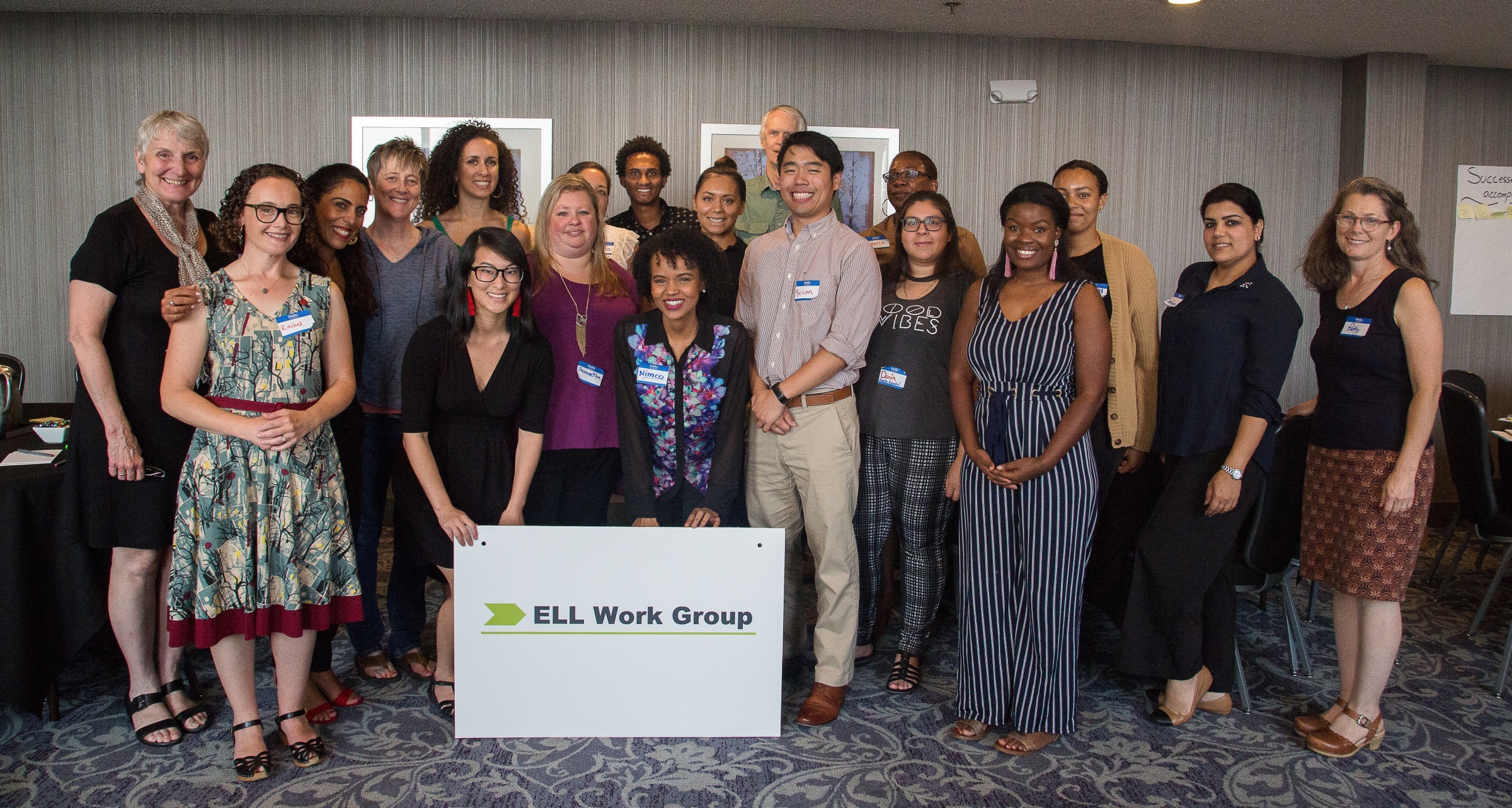
When the Road Map Project English Language Learners Work Group met in September for their annual retreat, there were two pressing agenda items. First was how they could support teacher diversification locally. The second was more internal facing: recruiting new work group members, especially students and families. With these efforts, the ELL Work Group hopes to deepen regional collaboration in creating a more equitable learning experience for linguistically diverse students and their families.
“What makes the ELL Work Group so unique is that we have representatives from communities who are most impacted by education inequity, and we also have representatives from powerful institutions,” said Nimco Bulale, Education Program Manager for OneAmerica, the work group’s staffing organization. “What makes us strong is that we are a coalition of diverse stakeholders invested in the same goals.”
Historically, the ELL Work Group has been comprised of individuals from school districts, community-based organizations, research institutions, early learning programs, higher education institutions, state education departments, and the broader community. However, membership has waxed and waned over time, and the group acknowledges the challenge of creating spaces that are accessible to everyone, especially students and families. Over the next three years, the group plans to actively work on recruiting new work group members—particularly leveraging the connections of OneAmerica’s Community Language Organizers.
Dr. Fenglan Nancy Yi-Cline, Federal Way Public School’s ELL Program Specialist, said she cherishes the opportunity to share her experiences with the work group, and also learn from others. “When we collaborate together, the collective impact grows exponentially,” she said. “I hope we will be able to have more voices from our English learner students and the community!”
The ELL Work Group is one of the Road Map Project’s longest-standing action teams. Since 2011, they have pushed for systems change through high-payoff strategies. The group believes systemic change is more sustainable when there are advocates pushing for equity from the outside as well as advocates within the system to implement those changes. There are state-level wins: advocating lawmakers in Olympia to offer multilingual high school graduates the Seal of Biliteracy and to pass State House Bill 1445, which will expand dual language education programs.
The group also worked on a 2019-2020 strategic Grow Your Own campaign for teacher diversification in the Road Map Project region. Hiring and retaining teachers of color and bilingual teachers is a priority because research shows an educator workforce that reflects the student population is essential to student success. In the Road Map Project region, 72 percent of K-12 students are people of color, but only 19 percent of their teachers are. “Diversifying the educator workforce” is a System-Wide Equity Essential for the Road Map Project.
Although individual members might work on Grow Your Own initiatives through their roles outside of the work group—doing community outreach on behalf of a teaching program as a staff member; supporting paraeducators through alternative pathways; or collecting data on the importance of teacher diversification, for example—the role of the ELL Work Group is to give strategic advice on these efforts.
As participants discussed strategies to diversify the educator workforce at the ELL Work Group retreat, the room filled with discussion on topics such as the positive impacts of representative educators to how educator of color retention is an issue that is at times overlooked. The work group plans to continue crafting core messages and making recommendations for systemic change. The retreat was an opportunity for the ELL Work Group to connect across sectors and districts, contribute to advocacy priorities, and develop strategic action plans for their projects.
“I always feel invigorated when I am at the ELL Work Group,” said Nancy. “It’s such a wonderful space to learn from each other, hear perspectives from different stakeholders, and continuously grow our own practices.”
If you are interested in joining the English Language Learners Work Group, please contact Nimco Bulale at nimco@weareoneamerica.org.
Posted in: Action Teams , English Language Learners